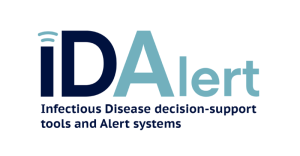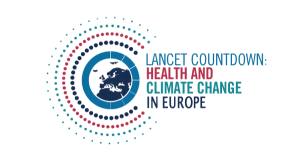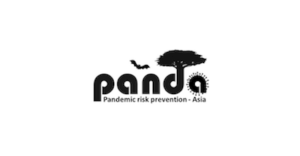Building planetary health resilience
Our research
Designing integrated data streams coupled with advanced modeling and intervention evaluation to reveal the interconnectedness and opportunities to planetary health resilience.
Hei-Planet is dedicated to uncovering the interconnected impacts of climate change, environmental degradation, biodiversity loss, and nature-based solutions on human health. Building on this understanding, we develop strategies and responses to enhance resilience.

Our team uses advanced modeling and data science techniques, including machine learning and geo-informatics, to predict health outcomes in real-world scenarios. We apply counterfactual analyses to assess the implications of climate change and environmental degradation on health.
To enrich our research, we leverage citizen science initiatives to generate novel data streams and design field studies that facilitate integrated data collection across various spatial and temporal scales.
Furthermore, we emphasize the co-design and evaluation of interventions that promote health, foster healthy ecosystems, and support sustainable environments. Assessing the economic outcomes of these interventions is also a key component of our work.
…Overall, our research fosters a holistic and integrated approach to public health and ecosystem resilience, breaking down silos between disciplines.
What we do
We aim to foster a healthier, more resilient and sustainable world, equipping communities and policy makers with the knowledge and tools needed to adapt to the health challenges posed by climate change.
Enhanced decision-making
We develop AI-enhanced data streams to provide possibilities for online monitoring and early warnings, as well as improved data for integrating innovative modeling, eventually building the foundation of scientific insights and solutions for policy and decision-making in integrated One Health surveillance.
Deeper understanding of zoonotic diseases
We utilize advanced technologies for passive monitoring of animal interactions and behavior, to gain deeper understanding of zoonotic disease risks and the importance of biodiversity conservation.
Improved preparedness
Our work emphasizes monitoring health risks and adaptation, improving preparedness for diseases transmitted between animals and humans, and combating antimicrobial resistance driven by anthropogenic activities and environmental changes.
Nature-based solutions evaluation
We conduct both interdisciplinary and transdisciplinary studies to evaluate nature-based solutions through the One Health lens, identify gaps in current approaches, and promote effective practices through collaboration and co-development.
New indicators
We contribute to the development of indicators to track the impacts of climate change on population health.

Discover
Our research groups
Hei-Planet consists of three interdisciplinary research groups: Climate-Sensitive Infectious Disease Lab, Lancet Countdown Europe, and Eco-epidemiology group—that collaboratively address key planetary health challenges through research and outreach initiatives.

Climate-sensitive infectious diseases: epidemic intelligence through models and novel data streams

Tracking climate change impacts on population health in Europe

Eco-epidemiological studies on interdependencies between health and ecosystems
Our projects

IDAlert
Tackling the emergence and transmission of pathogens to improve Europe’s resilience to health threats linked to infectious diseases

Lancet Countdown Europe
The Lancet Countdown Europe focuses on developing open, transparent, and rigorous indicators to track the impact of climate change on population health in the region.

TULIP
Combating antimicrobial resistance driven by climate change and plastic pollution interactions.

PANDASIA
One Health and Eco-Health perspectives to enhance pandemic preparedness for zoonotic diseases.

LILY
The LILY Action addresses gaps in Nature-Based Solutions for health (NbS-Health) by developing a comprehensive framework, indicators, and best-practice guidelines through participatory approaches with scientists, stakeholders, and communities.

BEPREP
BEPREP aims to identify best practices for biodiversity recovery and public health interventions to prevent future epidemics and pandemics by conducting spatially and temporally replicated field studies.

AFROGROW
AfroGrow aims to transform agroforestry across Africa into resilient, multi-functional landscapes that address climate resilience, biodiversity conservation, and socio-economic development, fostering food security, climate change mitigation, and inclusive growth through collaborative partnerships, innovative research, and stakeholder engagement.

PANDA
PANDA investigates the transmission of pathogens from animals to humans in Thailand and Laos, aiming to develop sustainable preventive measures against future pandemics.

iSPARROW
A bioacoustic Internet-of-Things (IoT) system for passive spatio-temporal monitoring of animal interactions, demonstrating its potential as a data-rich tool for understanding zoonotic disease risks and biodiversity conservation.
HIDSS4Health
The aim of the Helmholtz Information & Data Science School for Health (HIDSS4Health) is to attract, promote and train the best young talents at the interface between data science and health-related applications. HIDSS4Health offers a structured doctoral training program embedded in a highly interdisciplinary research environment, bringing together experts from the data and life sciences.
Climate Change and Health in sub-Saharan Africa
The DFG-funded research unit project “Climate Change and Health in sub-Saharan Africa” focuses on understanding and addressing the impacts of climate change on health in rural populations in Burkina Faso and Kenya.
Our publications
The Lancet Countdown on health and plastics
Landrigan, P. J., Dunlop, S., Treskova, M., Raps, H., Symeonides, C., Muncke, J., … & Rocklöv, J. (2025). The Lancet, 406(10507), 1044–1062. https://doi.org/10.1016/S0140-6736(25)10507-0
Prototyping an internet-of-things-based bioacoustics system to support research and surveillance of avian-associated infectious diseases
Treskova, M., Aamer, H., Mack, H., Wahlberg, M., Airom, O., Dayabandara, S., … & Rocklöv, J. (2025). Sensing and Bio-Sensing Research, 49, 100817.
Climate change and pandemics: a call for action
Treskova, M., Semenza, J. C., Arnés-Sanz, C., Al-Ahdal, T., Markotter, W., Sikkema, R. S., & Rocklöv, J. (2025). The Lancet Planetary Health, 9(9), Article 101302. https://doi.org/10.1016/j.lanplh.2025.101302
A climate and population dependent diffusion model forecasts the spread of Aedes Albopictus mosquitoes in Europe
Barman, S., Semenza, J. C., Singh, P., Sjödin, H., Rocklöv, J., & Wallin, J. (2025). Communications Earth & Environment, 6(1), 276.
Predictiveness and drivers of highly pathogenic avian influenza outbreaks in Europe
Opata MR, Lavarello-Schettini A, Semenza JC, Rocklöv J. Scientific Reports, 2025 Jul 17;15(1):20286.
Impact of climate and Aedes albopictus establishment on dengue and chikungunya outbreaks in Europe: a time-to-event analysis
Farooq, Z., Segelmark, L., Rocklöv, J., Lillepold, K., Sewe, M. O., Briet, O. J., & Semenza, J. C. (2025). The Lancet Planetary Health, 9(5), e374-e383
Automated tick classification using deep learning and its associated challenges in citizen science
Omazic, A., Grandi, G., Widgren, S., Rocklöv, J., Wallin, J., Semenza, J. C., & Abiri, N. (2025). Scientific Reports, 15(1), 24942.
The 2024 Europe report of the Lancet Countdown on health and climate change: unprecedented warming demands unprecedented action
van Daalen, Kim R et al. The Lancet Public Health, Volume 9, Issue 7, e495 – e522, DOI: 10.1016/S2468-2667(24)00055-0
Disclosing temperature sensitivity of West Nile virus transmission: novel computational approaches to mosquito-pathogen trait responses
Heidecke J, Wallin J, Fransson P, Singh P, Sjödin H, Stiles P, et al. // bioRxiv. 2024-09-20, DOI: 10.1101/2024.09.16.613097
Decision-support tools to build climate resilience against emerging infectious diseases in Europe and beyond
Rocklöv, Joacim et al. (2023) // The Lancet Regional Health – Europe, Volume 32, 100701, DOI: 10.1016/j.lanepe.2023.100701
West Nile Virus Eco-Epidemiology and Climate Change
Heidecke J, Lavarello Schettini A, Rocklöv J. (2023) // PLOS Climate. DOI: 10.1371/journal.pclm.0000129
From heatwaves to food systems: epidemiologists addressing climate challenges
Treskova M, Bärnighausen T, Pompeu CR, Rocklöv J. // International Journal of Epidemiology. 2024 Oct;53(5):dyae117
Effect of El Niño–Southern Oscillation and local weather on Aedes vector activity from 2010 to 2018 in Kalutara district, Sri Lanka: a two-stage hierarchical analysis

